Smartwatches equipped with advanced health monitoring capabilities are now more accessible, thanks to wearable technology innovations. These devices boast specialized sensors to track various health metrics like heart rate, blood pressure, and more. However, not all smartwatches offer the same level of accuracy or focus on specific health aspects.
To choose the best smartwatch for your health tracking needs, it’s essential to determine which health factors are most important to you. For instance, if heart health is a priority, opt for a smartwatch with an ECG and dependable heart rate monitor. Concerned about stress and energy levels? Look for a device with a dedicated stress sensor or one that considers heart rate variability.
Each recommendation below caters to specific health concerns or curiosities, ensuring you find the ideal smartwatch to monitor and improve your wellness effectively.
1. Apple Watch Series 9
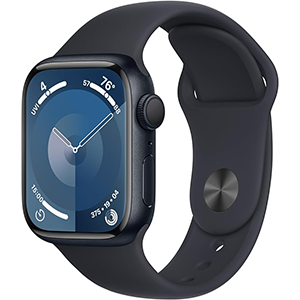
The Apple Watch Series 9 boasts the latest S9 chip, promising enhanced performance and battery efficiency, setting a new standard among Apple’s wearable devices. This iteration introduces notable upgrades, including heightened security measures, improved functionality in low-connectivity scenarios, and enhanced health tracking capabilities. Among its innovations is the introduction of the Double-Tap gesture for intuitive control.
While the Series 9 isn’t the pioneer in temperature sensing, it elevates the feature’s utility by leveraging skin temperature data to provide more accurate period predictions and retrospective ovulation estimates, making it a standout choice for menstrual health tracking. Alongside this, it retains essential health monitoring features such as the electrocardiogram (ECG) sensor, reliable heart rate tracking, blood oxygen monitoring, and sleep tracking.
The integration of onboard Siri processing facilitates seamless access to health statistics on the go, complemented by the new gesture control mechanism. However, it’s important to note that ongoing legal proceedings have led to the disabling of the blood oxygen monitoring feature in new models, although this doesn’t impact menstrual cycle tracking functionality.
While the Apple Watch Series 9 excels within the Apple ecosystem, it may not cater to Android users due to platform limitations. Despite its advancements, some key features may not be available immediately upon launch, and battery life remains a potential concern.
Pros:
- Powerful S9 chipset for improved performance
- Enhanced AMOLED display brightness
- Expanded Find My Phone functionality
- Onboard Siri query processing for convenience
- Noteworthy updates in WatchOS 10
Cons:
- Delayed availability of key features
- Limited improvement in battery life
2. Fitbit Sense 2
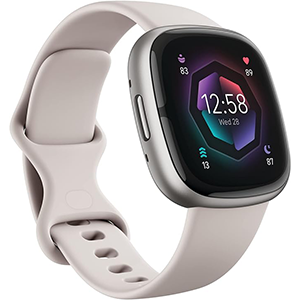
The Fitbit Sense 2 is a comprehensive health-oriented smartwatch, equipped with an array of sensors including EDA/cEDA, ECG, heart rate, SpO2, and skin temperature monitoring, alongside robust sleep tracking features. Complementing its health suite are built-in GPS, Fitbit Pay, and the ability to make on-wrist phone calls.
Noteworthy among its features is the inclusion of a continuous electrodermal activity (cEDA) sensor, which monitors skin conductivity changes, aiding Fitbit’s stress tracking capabilities. The Stress Management Score provides users with a clear understanding of their stress levels, while the mood tracker enhances the watch’s intuitive reflection and relaxation functions. Moreover, its sleep tracking capabilities are both detailed and useful.
Despite its health-centric focus, the Sense 2 lacks certain smartwatch features present in its predecessor, such as Google Assistant, Wi-Fi, and support for third-party apps. Additionally, some functionalities are gated behind the Fitbit Premium subscription.
For those seeking a fully featured smartwatch with similar health tracking capabilities, the Google Pixel Watch 2 presents a compelling alternative, albeit at a higher price point. However, until the FDA-approved sleep apnea detection functionality arrives on the Galaxy Watch series, the Sense 2 remains the top choice for sleep-conscious users.
Pros:
- Sleek, lightweight design
- Impressive battery life
- Vibrant AMOLED display
- Responsive performance
- Outstanding sleep and stress tracking
Cons:
- Inconsistent GPS tracking
- Absence of Google Assistant support
3. SAMSUNG Galaxy Watch 6
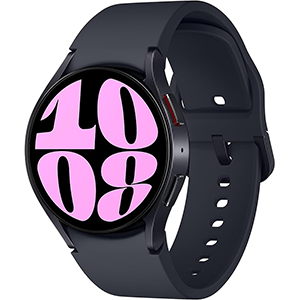
The Samsung Galaxy Watch 6 combines the strengths of Wear OS 4 with Samsung’s signature smartwatch features, presenting a compelling standalone device with a robust Samsung Wallet app and seamless integration with Galaxy smartphones.
Pioneering the inclusion of a bioelectric impedance analysis (BIA) sensor among Wear OS smartwatches, the Galaxy Watch 6 offers comprehensive body composition measurements, including skeletal and muscle mass, water retention, and fat mass. This feature proves invaluable for individuals focused on fitness and weight management goals.
While the blood pressure monitoring feature is carried over from previous models, its calibration requires a portable blood pressure cuff and is exclusive to Samsung smartphones, limiting its accessibility. Nevertheless, the Galaxy Watch 6 excels in other health tracking aspects, including reliable sleep tracking, SpO2 monitoring, heart rate tracking, and an ECG sensor.
Enhancements in design, such as a larger and more vibrant AMOLED display with reduced bezels, coupled with a slightly larger battery, contribute to an improved user experience. The device also boasts a sporty yet sophisticated aesthetic and offers user-friendly quick-release straps.
Despite its strengths, the Galaxy Watch 6 presents mostly incremental improvements over its predecessor, and the touch bezel functionality may be inconsistent.
Pros:
- Larger and brighter AMOLED display
- Smooth Wear OS 4 software experience
- Stylish and versatile design
- Convenient quick-release strap mechanism
- More affordable than the Watch 6 Classic
Cons:
- Incremental upgrades from the Watch 5
- Reliability issues with the touch bezel
4. Withings Scanwatch
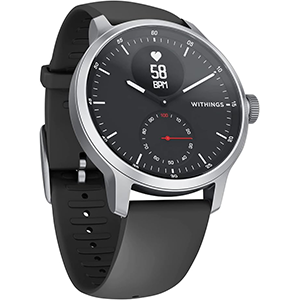
The Withings Scanwatch presents itself as a sophisticated analog timepiece with covert health and fitness tracking capabilities, including exceptional sleep monitoring. It stands out for its clinical validation in detecting early indicators of atrial fibrillation (AFib) and sleep apnea.
Despite its modest selection of smart features compared to other devices, the ScanWatch compensates with its medically validated sensors. These include a medical-grade pulse oximeter for monitoring blood oxygen levels and an ECG sensor capable of detecting irregular heartbeats, with the option to export or print data for medical consultation.
A notable feature for respiratory health is the Respiratory Scan, which analyzes heart rate, respiratory rate, and blood oxygen levels to identify potential breathing disturbances during sleep. This data is presented graphically, aiding users in recognizing any signs of sleep apnea.
Pros:
- Elegant and refined design
- Long-lasting battery life
- Well-designed and user-friendly Health Mate app
- Convenient and potentially life-saving ECG monitoring
- Clinically validated notifications for AFib and respiratory disturbances
- Outstanding sleep tracking capabilities
Cons:
- Limited smart features due to small display
- Fewer advanced fitness insights or features
5. Garmin Venu 3
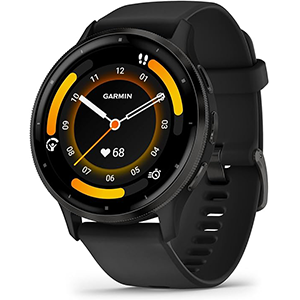
The Garmin Venu 3 prioritize personalized health and wellness insights with Garmin’s advanced body tracking features. Notably, the Body Battery feature tracks activity levels, while enhanced sleep tracking now includes nap detection.
A standout feature of the Garmin Venu 3 is its focus on monitoring energy reserves throughout the day and recovery during sleep. The Body Battery feature amalgamates heart rate variability, stress, and activity data to provide users with a precise energy reserve rating ranging from 1 to 100. This feature offers remarkable accuracy in assessing energy levels.
Introducing new functionalities to the series, such as Nap detection for comprehensive sleep monitoring and Daily Summary for nightly health overviews, the Venu 3 enhances user experience. Additionally, the Morning Report feature remains available for users each morning.
Although lacking the ECG capabilities of its predecessor, the Garmin Venu 3 still stands out as Garmin’s premier smartwatch. However, for those interested in energy monitoring and seeking a potential bargain, the Garmin Venu 2 Plus remains a commendable choice if available at a competitive price.
Pros:
- Exceptionally accurate GPS and heart rate sensors
- Automated nap detection and sleep guidance
- Support for on-device phone calls and voice assistants
- Larger display for enhanced visibility
Cons:
- Absence of an ECG application
- Relatively higher price compared to competitors
- No LTE-enabled model
Conclusion
In the ever-expanding landscape of smartwatches, the quest for the ideal device for health monitoring can be daunting. However, amidst the plethora of options, several standout contenders offer unparalleled capabilities in tracking and enhancing one’s well-being.
From the Apple Watch Series 9’s cutting-edge sensors and comprehensive health suite to the Fitbit Sense 2’s clinical-grade monitoring and stress management features, each smartwatch brings unique strengths to the table. The Samsung Galaxy Watch 6 impresses with its integration of Wear OS 4 and robust health tracking, while the Withings Scanwatch combines elegance with clinically validated health sensors. Garmin’s Venu 3 series excels in personalized data insights and energy monitoring.
Ultimately, the best smartwatch for health monitoring depends on individual needs and preferences, whether prioritizing specific health metrics, ecosystem compatibility, or design aesthetics. With advancements in technology and continuous innovation, smartwatches continue to evolve as indispensable tools for monitoring and optimizing personal health and wellness.



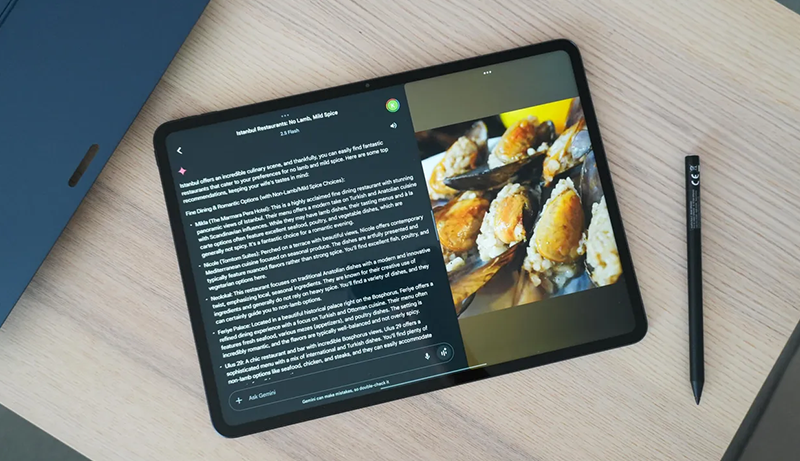

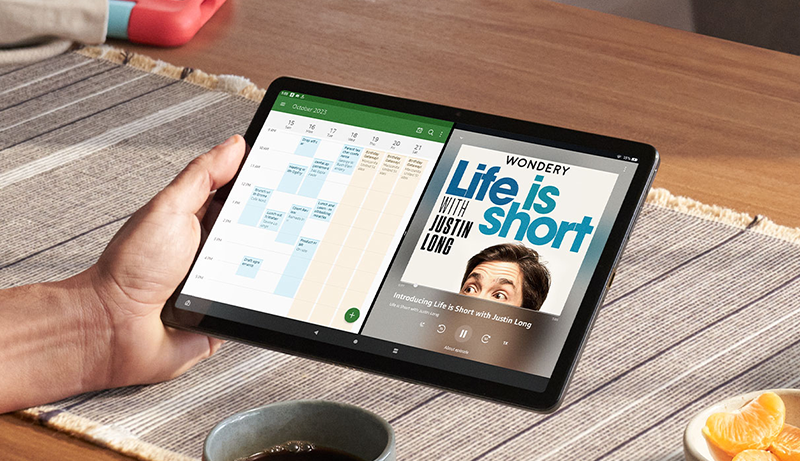

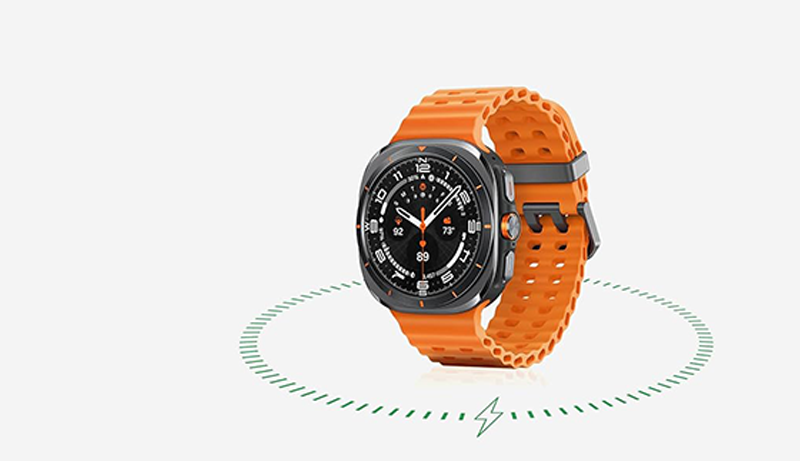
Leave a Reply